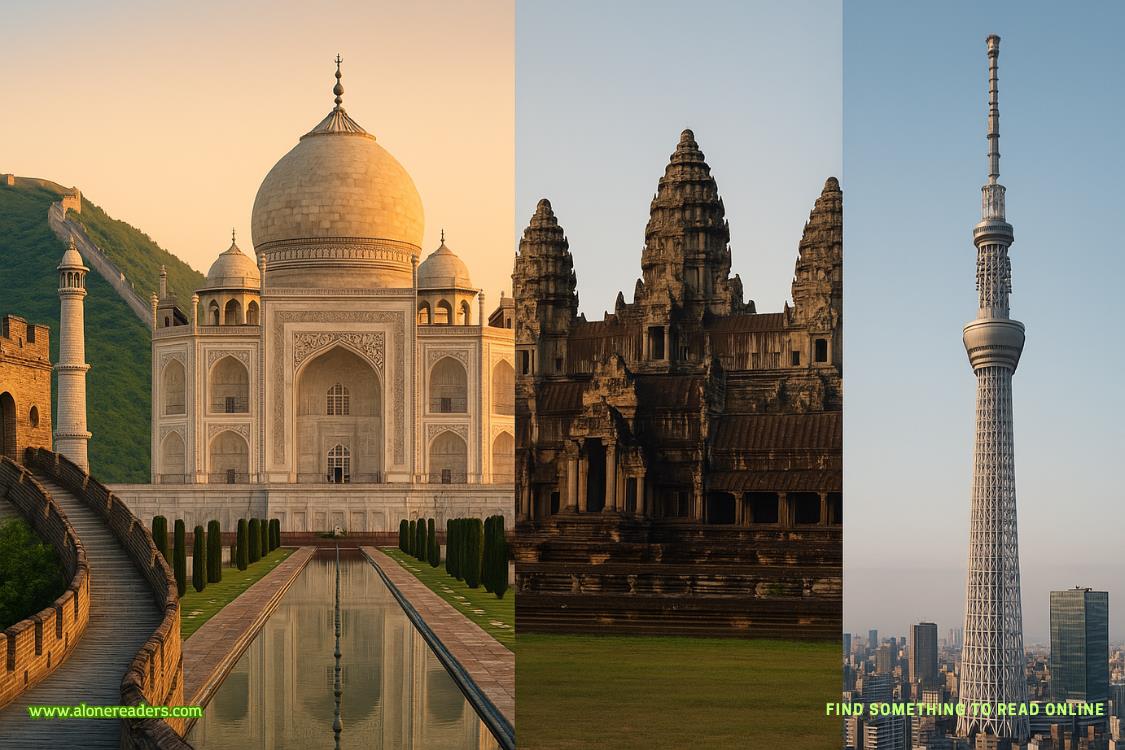Page 20 of King's Man
“Isn’t it?” Their eyes met across the table, intimate and terrible. The old connection was still there, Nate realized with a jolt, as if they could speak heart-to-heart without need for words. But where once it had been warm with love and trust, now it was frosty and unforgiving.
He looked away sharply.
After a moment, Sam got to his feet, scraping his chair across the floor. “We should go,” he said, without meeting Nate’s eye again, “or we won’t finish the next stage before dark.”
Without waiting for a reply, he turned and left the parlor, taking the last word with him.
Chapter Seven
Out of the frying pan…
Sam had fled the inn to escape the turmoil of his feelings. Of course there was nowhere to go but the narrow confines of the chaise where he and Nate now sat with only betrayal, estrangement, and a scant foot of empty space between them.
Staring out the side window, Sam tried to pretend he was alone. Yet, in the periphery of his vision, he could still see Nate. And his eyes, treacherous devils, wanted to drink their fill. The longer they were together, the harder it was to ignore the stirring of feelings he’d hoped were dead. No, not hoped were dead; had striven to kill. But it was no good. Nate was here. Impossibly, he washere. And to Sam’s dismay, his heart was responding the way it had from the first moment Nate walked into Reed’s office — with helpless longing and desire.
The truth was that Sam had always found Nate captivating. Not ruggedly handsome but striking in a way that made his feelings churn with a sweet-sour sensation halfway between pleasure and pain.
God but he’d loved Nate fiercely.
Deep in his bones he still remembered how it felt to hold him in the afterglow of their lovemaking, overflowing with tenderness and the need to keep him safe. Once, he’d have thrashed anyone who dared raise a hand against Nate Tanner. Once, he’d have thought Nate would do the same for him.
History had proven otherwise.
Nate fidgeted. He crossed his ankles, re-crossed them. He opened a book — he still had his nose in a book at every opportunity — closed it again. Sighed. Shifted. Eventually he spoke. “I’d give my right arm for a slab of that gingerbread they sell down at the docks.” His accent was the accent of home and it fell with distressing softness on Sam’s ears. “Have you tried it? Best thing about London. Well, aside from the bookshops.”
Sam didn’t intend to reply, but his stomach gave a disloyal growl and Nate huffed a soft laugh. It jabbed like a dart, familiar and painful. “I avoid sugar these days,” Sam said gruffly. “It’s difficult to enjoy the taste when it’s polluted by the blood and tears of enslaved people.”
Nate inclined his head in acknowledgment, hands spread ruefully. “I buy free sugar whenever I can. But I admire your principles, Sam. I know you have a sweet tooth.”
They both did. Back in Rosemont, they used to buy slabs of almond cake, sometimes honey cake, and eat it together outside the church in the half hour John Reed allowed them for breakfast. You wouldn’t know it from Nate’s slight physique, but he’d always eaten like a horse.
Sam closed his eyes against an unbidden flash of memory: that lissome back glistening in the moonlight as Sam moved inside him, the green scent of the riverbank all around them. He cleared his throat, shifting uncomfortably as his prick grew heavy. Dear God, and with Nate right there.
He made himself summon a different memory instead: a dozen burning torches in the hands of his neighbors, the terrifying stench of hot tar, suffocating feathers clogging his mouth and nose. And Nate, silent and watching while the mob imposed their ‘justice’.
“I looked for you,” Nate said softly, as if plucking the thought from Sam’s mind. “As soon as I could, I went looking for you. But the British line was so close…” Sam didn’t know how to respond to that. Was he supposed to feel grateful? “After the fighting moved on, I traced you as far as —” Nate’s voice faltered “ — as Simsbury Mine. But beyond that, nothing.”
“That’s because I escaped. The bastards didn’t know where I went.”
“That’s what I hoped.” Nate smiled fleetingly, uncertain as butterfly wings. “I prayed for it.”
That was something from a man with no real faith, but it only made Sam’s hurt that much sharper. “No point digging all that up.” He turned back to the window.
“Dig it up? It’s hardly buried.” The bench shifted as Nate slid closer.
Sam could feel the heat of him through his clothes. Or perhaps something more than heat — the life of him, the profound bond that had once held them close. “It’s done,” Sam said tersely. “It’s past. Best leave it there.”
A taut silence. “If we leave the past in the past, can’t we be — Can’t we at leasttryto be friends again?”
The clear longing in his voice coiled around Sam’s heart with hot pressure. He hated that Nate sounded like home, he hated that the very sight of him twisted raw scars in his chest until they bled, and he hated that Nate wanted to pretend the past had never happened. “No,” he said, blinking at his reflection in the window glass. “No, we can’t.”
“But the war’s over.”
“Says the man working for the Continental Congress.”
Nate sighed. “That doesn’t make us enemies.”
“Maybe not. But I still —” Sam turned, and the words fell away unspoken. Hell, but Nate was close, leaning expectantly into the last splash of sunlight. Their knees almost touched, the space between them a raw gash of loss and want. A breeze from the open window set Nate’s hair shifting, sunset lending more copper than was due to those errant strands. His mouth parted as if to argue or to kiss, lips pink and a little chapped, his warm brown eyes luminous with misplaced hope.
- His to Command by Emma Bray
- Detention with Daddies by Sofia T. Summers
- Daddy's Heart by Dani Wyatt
- Tarnished Hands by T.L. Smith
- The Way We Win by Tia Louise
- Tracked By Hound by Cassi Hart
- Until Presley by E.M. Shue
- Love in Excess by N. Slater
- The Madness Within by Raja Savage
- Greek's Enemy Bride by Caitlin Crews
- Taken by Lena Little
- Maddox by Piper Stone
- Property of Madman by Sapphire Knight
- Sacrificing Zoriah by Emily Klepp
- Omega's Triplets by J.L. Wilder
- Tag by Natalie Bennett







